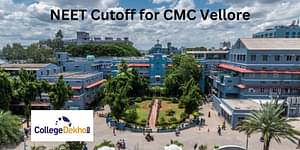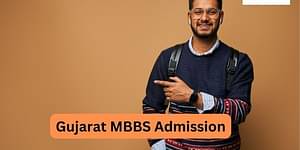Alternative Medicine
Alternative Medicine Courses Overview
India is regarded as the epicentre of alternative medicine studies and cures due to its wealth of old scientific knowledge. In short, alternative medicine refers to medical treatments that are utilised in place of standard (mainstream) treatments.
There are several alternative medicine courses available to students immediately upon the completion of their class 12th and at various levels of study (certificate, diploma, undergraduate and postgraduate). A UG or PG course in alternative medicine typically takes 2-3 years to complete. To get admitted to a prestigious college, one must have studied Physics, Chemistry, and Biology in class 12th and received at least 50%-60%. Some colleges additionally require NEET, AIIMS, PGIMER, and other admission test results.
AIIMS, BHU, Kasturba Medical College, Armed Forces Medical College, Aligarh Muslim University, and others are among the leading institutes in India for studying alternative medicine courses. The average cost of pursuing alternative medicine courses is from INR 15,000 to INR 7 lakh. The return on investment in this area in terms of beginning salary is also excellent, with freshers earning INR 3-8 lakh per year. Let us find out more and understand the field of alternative medicine, the alternative medicine courses, scope, career opportunities and much more.
Table of Contents
- Alternative Medicine Courses Overview
- Alternative Medicine Courses Highlights
- Why Choose Alternative Medicine Courses?
- Different Types of Alternative Medicine Courses
- Different Specialisations for Alternative Medicine
- Alternative Medicine Courses Entrance Exams
- Alternative Medicine Courses Eligibility Criteria
- How to Get Admission to Alternative Medicine Courses?
- Popular Alternative Medicine Colleges in India
- Alternative Medicine Abroad Top Colleges
- What is Alternative Medicine Course Fees?
- Alternative Medicine Syllabus
- Alternative Medicine Scope in India – Career and Job Prospects
- Job Prospects
- Top Recruiters
- What is Alternative Medicine Salary?
- Skills Required in the Alternative Medicine Field
Alternative Medicine Courses Highlights
Mentioned below are some of the important highlights of Alternative Medicine courses for aspirants to look at:
Course |
Alternative Medicine |
|---|---|
|
Degree Level |
Certificate, Diploma, Bachelor’s (BSc), Master’s (MSc) and PhD/MD |
|
Duration |
|
|
Exam Type |
Semester-based |
|
Minimum Qualification Requirement |
10+2 with Physics, Chemistry and Biology as mandatory subjects |
|
Average Salary |
|
|
Average Estimated Fees Incurred |
|
|
Selection Process |
Entrance + Merit-based |
|
Popular Entrance Exams |
NEET, AIIMS, JIPMER, SUAT, NEET SS, AIIMS PG and more |
|
Top Alternative Medicine Courses Specialisation |
Acupuncture, Ayurveda, Homeopathy, Naturopathy, Chiropractic and Osteopathic Medicine, Massage Therapy, Body Movement Therapies, Electromagnetic Therapy, etc |
|
Minimum Aggregate Percentage Required for Admission |
50%-60% in 10+2 + Entrance Exam |
|
Top Recruiters |
AYUSH Health Centres, Alternative Medicine Wing of PHCs, Government Hospitals, Private Hospitals, Government and Private Clinics, etc. |
|
Career Prospects |
General Practitioner, Private Practitioner, Para Clinic Specialist, Lecturer, Medical Head, Researcher, Medical Instructor, etc. |
Why Choose Alternative Medicine Courses?
The study of 'alternative medicine' involves a diverse spectrum of medical practises and systems from throughout the world. People in Western nations such as the US, the UK, Canada, and others use it to describe techniques that are not part of mainstream medicine. Alternative medicine research is subjective. While physicians in one area of the globe may consider a practice to be mainstream, doctors in another part of the world may consider the same treatment to be an alternative.
Having said that, the alternative medicine sector provides a vast selection of educational courses and programmes for anyone interested in entering this booming area, ranging from certifications to PhD degrees.
Aspirants should also be aware of the reality regarding alternative medicine, which has not only been around longer than traditional medicine but is also growing more prominent. From Olympians using the ancient Indo-Chinese medicinal technique of 'cupping' to recently published data demonstrating that acupuncture helps reduce pain caused by carpal tunnel syndrome, western medicine is just now beginning to tap into what alternative medicine has long understood.
Different Types of Alternative Medicine Courses
There are several courses that take a holistic approach to alternative medicine and try to treat ailments and promote healing by integrating mind, body, and spirit. The foundations and methodology of alternative medical treatments vary. These medications and therapies are either culturally based or based on traditional medical methods based on folk knowledge, spiritual beliefs, or supernatural energy. Below is a listing of different alternative medicine courses for aspirants to look at:
Diploma Courses
- Diploma in Yoga
- Diploma in Physiotherapy
- PG Diploma in Health Science in Acupuncture
- Diploma in Acupressure
- Diploma in Aromatherapy
- Diploma in Naturopathy
- Diploma in Ayurvedic Nursing and Panchkarma Therapy
- Diploma in Ayurvedic Pharmacy
- Diploma in Homeopathy
- Diploma in Massage and Spa Therapy
Undergraduate Courses
- Bachelor of Natural Medicine
- Bachelor of Naturopathic and Herbal Medicine
- Bachelor of Health Science in Acupuncture
- Bachelor’s in Acupuncture
- Bachelor of Occupational Therapy
- Bachelor in Midwifery
- Bachelor of Physiotherapy
- Bachelor of Electro Homeopathy
- Bachelor of Yoga Therapy
- Bachelor of Herbopathy
- Bachelor of Traditional Medicine
- Bachelor of Hydro Therapy
- Bachelors in Physiology
- Bachelor’s in Kinetic Science
- Bachelor’s in Chiropractic Science
- BSc in Paramedicine
- Bachelor of Ayurveda, Medicine, and Surgery (BAMS)
- Bachelor of Homeopathic Medicine and Surgery (BHMS)
- Bachelor of Unani Medicine and Surgery (BUMS)
Postgraduate Courses
- MSc in Naturopathy and Yogic Sciences
- MSc in Ayurveda
- Master of Acupuncture and Oriental Medicine
- Master of Health Practice in Acupuncture
- Master’s in Acupuncture
- MA in Art Therapy
- MA in Dramatherapy
- MSc in Comparative and Experimental Medicine
- MSc in Oriental Medicine
- MSc in Midwifery
- MSc in Epidemiology
- MSc in Complementary and Alternative Medicine
- MSc in Occupational Therapy
- Master of Naturopathy and Yoga Science
Doctorate Courses
- MD Homeopathy
- MD Ayurveda
- MD in Acupuncture and Oriental Medicine
- MD in Comparative and Experimental Medicine
- MD in Complementary and Alternative Medicine
- PhD in Yoga Therapy
- PhD in Traditional Medicine
- MD in Acupressure
Different Specialisations for Alternative Medicine
The practice of complementary and alternative medicine encompasses a wide range of disciplines. Furthermore, various segments of one field may overlap with elements of another. Let us look at some of the notable specialisations available through Alternative Medicine courses for aspirants:
Traditional Alternative Medicine
Acupuncture, homoeopathy, and Oriental treatments are examples of more popular and acknowledged kinds of therapy. These remedies have been used for millennia all throughout the world. Traditional alternative medicine may include the following:
- Acupuncture
- Ayurveda
- Homeopathy
- Naturopathy
- Oriental medicine
Body Therapy Medicine
Touch has been employed in medicine from the beginning of time. Healing by touch is founded on the premise that an illness or damage in one portion of the body may impact the entire body. If the other areas of the body can be restored to full health by physical manipulation, the body may entirely focus on healing at the location of damage or sickness. Body and mind approaches are frequently mixed. Body therapy includes the following:
- Chiropractic and osteopathic medicine
- Massage
- Body movement therapies
- Tai chi
- Yoga
Diet and Herbs Medicine
Over the years, man's diet has evolved from a basic diet of meats, fruits, vegetables, and grains to one that is often high in fats, oils, and complex carbohydrates. Nutritional excess and insufficiency have become issues in today's culture, both of which contribute to the development of chronic illnesses. Many dietary and herbal therapies aim to restore the body's nutritional equilibrium. Dietary and herbal interventions may include:
- Dietary supplements
- Herbal medicine
- Nutritional studies
External Energy Medicine
Some individuals think that external energy emitted by objects or other sources have a direct impact on a person's health. External energy treatment is demonstrated by:
- Electromagnetic therapy
- Reiki
- Qigong
Mind Therapy Medicine
Even mainstream medicine understands the importance of the mind-body link. According to research, people recuperate faster if they have good emotional and mental health. Mind-body therapies may include:
- Meditation
- Biofeedback
- Hypnosis
Senses Therapy Medicine
Some individuals think that touch, sight, hearing, smell, and taste can have an impact on overall health. Therapies that incorporate the senses include:
- Art, dance, and music
- Visualisation and guided imagery
Alternative Medicine Courses Entrance Exams
Aside from their hard curriculum and training, getting into an alternative medicine degree is a difficult part in itself. Apart from class 12 marks, the most crucial eligibility criteria for obtaining a degree in alternative medical science, whether undergraduate, postgraduate or doctorate level, is the entrance exam scores. While many universities have their own exams to screen students, there is a handful that is approved nationwide.
The following are some of the most well-known entrance tests for alternative medicine courses in India:
- NEET
- AIIMS
- JIPMER
- SUAT
- AP EAMCET
- NEET SS
- AIIMS PG
- PGIMER
Alternative Medicine Courses Eligibility Criteria
Every year, millions of aspirants aspire to study or pursue a career in medicine. However, only a select handful get admission. It is quite difficult for aspirants to gain admission to top universities that offer alternative medicine programmes. Matching the eligibility requirements of the chosen course and institute is the first barrier candidates confront when applying for admission to study alternative medicine.
The eligibility criteria for various alternative medicine courses vary and are impacted by a variety of factors. Having stated that, the general eligibility criteria for those interested in studying alternative medicine courses are tabulated below:
Level of Study |
General Eligibility Criteria |
|---|---|
|
Diploma |
Candidates must have passed in Class 12th from a recognised board and must have studied Physics, Chemistry and Biology. |
|
Undergraduate |
Candidates must have passed in 12th with Physics, Chemistry, and Biology from a recognised board with at least 50%-60% aggregate marks along with an entrance exam to study a UG course in alternative medicine. |
|
Postgraduate |
Candidates must have a bachelor’s degree in a relevant field of study from a recognised university with at least 50%-60% aggregate marks along with an entrance exam to study a PG course in alternative medicine. |
|
Doctorate/MD |
Candidates must have a master’s degree in a relevant field of study or specialisation from a recognised university along with an entrance exam to study a doctorate course in alternative medicine. |
How to Get Admission to Alternative Medicine Courses?
As previously said, admission to alternative medicine courses in India is strictly dependent on the performance in class 12th/bachelor's/master's results. Most alternative medicine programmes start in May and terminate in late June or early July. Candidates can submit their applications both online and offline, depending on the university.
- To apply to a university, one must fill out the application form online and go to the official website of the university or institution. They must do so after going through the university’s eligibility criteria and selection process.
- Admissions to UG and PG courses in Alternative Medicine are based on applicable entrance exams, as mentioned earlier.
- They must wait for any necessary letters from the college/university after successfully enrolling.
- During online registration, one must submit any relevant papers that the institution may require, such as all past academic transcripts, ID verification, pictures, and so on.
- Candidates who prefer to apply offline must purchase an application form along with a brochure from the college campus and submit it after filling out the form correctly.
- In both cases, admission will be granted only to those eligible students who fulfil all the admission conditions and clear the cut-off marks set by the college.
Popular Alternative Medicine Colleges in India
Some of the most popular and well-known colleges in India that are offering courses in alternative medicine studies are as follows:
Name of the Institution |
Location |
|---|---|
|
Aligarh Muslim University |
Aligarh |
|
Nehru Homeopathic Medical College and Hospital |
Delhi |
|
Holy Angels College of Alternative Medicines Mumbai |
Mumbai |
|
Jain Vishva Bharati Institute |
Rajasthan |
|
Schools of Health Sciences, Indira Gandhi National Open University |
Delhi |
|
IIMT Medical College and Hospital |
Agra |
|
Institute of Medical Science |
Varanasi |
|
Subharti University (SVSU) |
Meerut |
|
SGT University |
Gurugram |
|
Mahatma Jyotiba Phule Rohilkhand University |
Bareilly |
|
Banaras Hindu University – BHU |
Varanasi |
|
Rajiv Gandhi University of Health Sciences |
Bengaluru |
|
Narayana Yoga, and Naturopathy College |
Andhra Pradesh |
|
National Institute of Naturopathy |
Pune |
|
Mahavir College of Naturopathy and Yoga |
Chhattisgarh |
|
Institute of Alternative Medicine and Research (IAMR) |
Kolkata |
|
All India Institute of Medical Science (AIIMS) |
Delhi |
|
CMC Vellore |
Vellore |
|
Armed Forces Medical College |
Pune |
|
Kasturba Medical College |
Manipal |
Alternative Medicine Abroad Top Colleges
Outside of India, there are other educational institutes that are also providing a plethora of alternative medicine courses. The following are some of the renowned institutions and colleges that provide the same to students from all over the world:
Name of the Institution |
Location |
|---|---|
|
University of Westminster |
United Kingdom |
|
London Metropolitan University |
United Kingdom |
|
University of Central Lancashire |
United Kingdom |
|
Leeds Beckett University |
United Kingdom |
|
American College of Acupuncture & Oriental Medicine |
United States |
|
Bastyr University |
United States |
|
Lincoln College |
United Kingdom |
|
MCPHS University |
United States |
|
The University of Sydney |
Australia |
|
Auckland University of Technology |
New Zealand |
|
Universiti Sains Malaysia |
Malaysia |
|
MacEwan University |
Canada |
|
Torrens University Australia |
Australia |
|
Australasian College of Natural Therapies |
Australia |
|
Australian Institute of Holistic Medicine |
Australia |
|
New York College of Health Professions |
USA |
|
Queen’s University Belfast |
United Kingdom |
|
University College Dublin |
Ireland |
|
Transilvania University of Brasov |
Romania |
|
University of Essex |
United Kingdom |
What is Alternative Medicine Course Fees?
Medical students and aspirants seeking admission should know the course fees of different alternative medicine courses in India. The table provided below will enlighten you with the average estimated programme fees of alternative medicine courses at different levels of study:
Programme/Study Level |
Average Annual Estimated Fee Range in INR |
|---|---|
|
Certificate |
5,000-30,000 |
|
Diploma |
15,000-40,000 |
|
Undergraduate |
20,000-5,00,00 |
|
Postgraduate |
70,000-5,00,000 |
|
Doctorate/MD |
2,50,000-7,00,000 |
Alternative Medicine Syllabus
The syllabus or the course curriculum is different for different alternative medicine courses at different levels of study (certificate, diploma, undergraduate, postgraduate, doctorate). Here are some of the most common and famous subjects that aspirants will come across while studying alternative medicine:
History of Ayurveda |
Human Anatomy |
Pathology |
Toxicology |
|---|---|---|---|
|
Principles of Homeopathic Philosophy and Psychology |
Padartha Vigyana |
Yoga |
Material Medica of Ayurveda |
|
History of Unani System |
Physiology Including Biochemistry |
Principle of Yoga |
Advanced yoga |
|
Biochemistry |
Physiology |
Philosophy of Nature Cure |
Surgery including EYE, ENT and Homeo Therapeutics |
|
Sanskrit and Samhita |
Philosophy of Nature Cure |
Pharmacology of Ayurveda |
Personal and Social Hygiene including Dietetics |
|
Anatomy, Histology, and Embryology |
Homeopathic pharmacy |
Pathology and Microbiology |
Forensic Medicine & Toxicology |
|
Obstetrics and Gynaecology |
Nutrition & Herbology |
Acupuncture, Acupressure, Reflexology, Reiki, and Pranic Healing |
Practice Medicine and homeo Therapeutics |
|
Naturopathic & Modern Diagnosis |
Manipulative Therapies |
Fasting & Diet therapy |
Physical Medicine and Rehabilitation |
|
Clinical Naturopathy |
Community Medicine |
Dissertation |
Research Methodology and Recent Advances |
Alternative Medicine Scope in India – Career and Job Prospects
Aspirants would be pleased to learn that alternative medical systems (primarily Ayurveda, Unani, Yoga, Naturopathy, Siddha, and Homeopathy) are rapidly gaining pace and acceptance in India. In the 2018 Union Budget, the government boosted the budget for the AYUSH Ministry, which is responsible for growing education and research in various fields of medicine, by more than 13% to INR 1,626.37 crore.
With significant government backing, the number of graduate and postgraduate institutes for the study of AYUSH medicine is steadily increasing. Central regulatory councils are also being formed in order to build infrastructure and develop a solid regulatory framework.
Additionally, the rising awareness of these alternative medicine practices and therapies is fueling a surge in demand in India and throughout the world. The AYUSH market is worth USD 10 billion and is predicted to increase to USD 20 billion in the future years.
As a result, it would be wise to state that the scope of alternative medicine research or the AYUSH stream is vast in India. Furthermore, aspirants can always pursue higher studies in their chosen field of study or specialization or can begin their career/professional practice.
Job Prospects
Graduates of alternative medicine courses contribute to the promotion of alternative medicinal studies and practices in the mainstream healthcare system. These methods have grown in popularity in recent years, whether due to fewer side effects or more access to better therapies. Here is a list of several job prospects and opportunities for graduates looking to build a good career in alternative medicine:
- Therapists, Acupuncturists
- Instructors or Trainers
- Researchers
- Physicians
- Nutritionists
- Health Administrators
- Pharmacists
- General Practitioners
- Lecturer/ Professor
- Private Practice
- Para Clinic Specialist
- Chiropractors, Osteopathic Physicians
- Yoga Therapist
- Lifestyle counsellor
- Homeopathic Doctor
Top Recruiters
The top recruiters of alternative medicine courses in India are as follows:
- AYUSH Health centres
- Alternative Medicine Wing of PHCs
- Government Hospitals or Clinics
- Private Hospitals, Clinics and Agencies
- Rehabilitation Centres
- Pharmaceutical industries
- Life Science Industries
- Yoga and Meditation Centres
- Private and Government Institutes and Universities
What is Alternative Medicine Salary?
Check out the average estimated yearly salaries of some of the alternative medicine job profiles listed below:
Job Profile |
Annual Average Pay Range (INR) |
|---|---|
|
General Practitioners |
4-7 lakh |
|
Lecturer/ Professor |
3-5 lakh |
|
Researcher |
5-8 lakh |
|
Private Practitioner |
5-7 lakh |
|
Trainers |
3-5 lakh |
|
Nutritionists |
3-8 lakh |
|
Homeopathic Doctor |
3-6 lakh |
|
Chiropractor |
7-9 lakh |
|
Acupuncturist |
3-5 lakh |
|
Massage Therapist |
2-4 lakh |
|
Lifestyle Counselor |
4-6 lakh |
|
Para Clinic Specialist |
5-7 lakh |
Skills Required in the Alternative Medicine Field
People interested in a career in Alternative Medicine should be well-versed in their skills and how to use them to the benefit of others, which are:
- Communicational skills
- Academic competence
- Leadership skills
- Teamwork
- Empathy
- Emotional intelligence
- Problem-solving skills
- Attention to detail
- Decision-making skills
- Professionalism
- Resilience
- Capacity for learning more
Related Questions
Popular Courses
- Courses
- Alternative Medicine


















